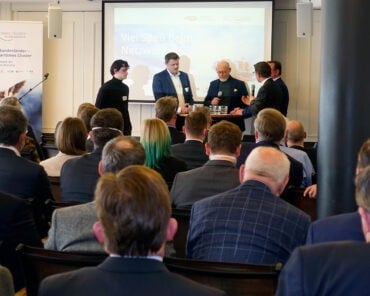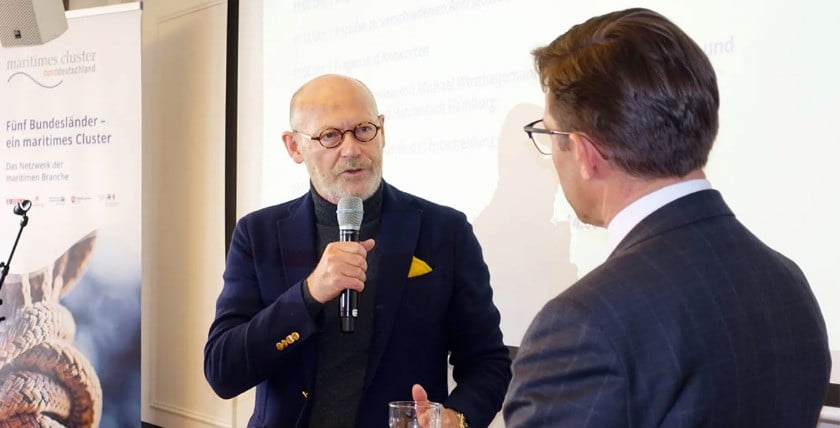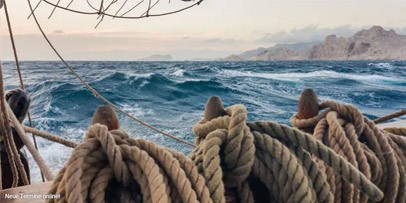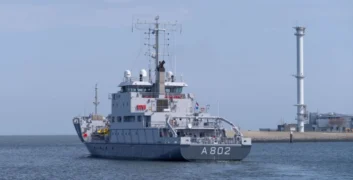The Maritime Cluster Northern Germany (MCN) and the Maritime Platform organised a face-to-face event on this topic. The interest was overwhelmingly high, with around 110 participants from business, research, associations and politics attending the event at the Hafen-Klub Hamburg on 31 March.
In addition to the path to lower-emission shipping, the consequences of the war in Ukraine for the maritime industry and Germany's energy supply were of particular interest due to the current situation.
The event began with a series of keynote speeches on new drive technologies and fuels. Jürgen Gerdes from LoGe Shipmanagement & Co. KG reported on progress in fuel cell technology for ships and his company's plans to build a gigafactory for innovative fuel cells in Lower Saxony with various partners from 2023. Methanol is a suitable fuel for this. Gerdes had previously rejected purely battery-electric operation, at least for ships on longer voyages.
Henning Edlerherr from the Maritime Cluster Northern Germany then presented methanol as an alternative fuel - a topic in which the MCN is "involved in a number of exciting projects". He emphasised that the potential for reducing CO2 in the engine "depends almost exclusively on the fuel". Green methanol is climate-neutral and also reduces air pollutants compared to conventional fuels. He pointed out that large two-stroke engines and small engines powered by methanol are already available as standard.
Alexander Feindt from MAN Energy Solutions SE emphasised that the decarbonisation of shipping "will not fail due to technology". In order to reduce greenhouse gas emissions to zero, an energy mix will probably be necessary. Feindt presented his company's projects in the development of ammonia drives. MAN plans to present the world's first large two-stroke ammonia-powered engine in 2024.
Prof Dr Friedrich Wirz from the Technical University of Hamburg reported on experiences with dual-fuel engines. Wirz defended engines fuelled with fossil LNG (liquefied natural gas) as a bridging technology. These could later be fuelled with synthetic natural gas (SNG) without major technical conversion, which would then manage "without fossil CO2". The speakers were unanimous in their call for reliable framework conditions, funding for the development of alternative drive systems in line with the needs of SMEs and the expansion of a bunker infrastructure for alternative fuels.

Networking at the 15th MCN panel on alternative fuels and drives, Photos: MCN e.V.
Hamburg's Senator for Economic Affairs Michael Westhagemann (non-party) then answered questions. As expected, the interview with Georg Ehrmann from the Maritime Platform focussed on the Ukraine crisis and international supply chain problems. The war in Ukraine has shown that dependence on Russian energy imports must be reduced very quickly, said the senator. There is panic in large parts of the German economy that they will no longer be able to work economically.
In a subsequent moderated discussion, the members of the Bundestag Lukas Benner (B90/The Greens), Uwe Schmidt (SPD) and Oliver Grundmann (CDU) agreed, despite all the differences in detail, that energy policy must now be changed. Germany urgently needs its own LNG terminals. Faster authorisation procedures, a faster expansion of offshore wind power generation and a quicker connection to southern Germany were demands that the three politicians were able to agree on. There also seemed to be a consensus that the current crisis could also mean great opportunities for the northern German maritime industry.
Dr Susanne Neumann from the Maritime Cluster Northern Germany ended the official part of the event with her conclusion: it is still unclear "which green fuel will win the race". In the lively discussions that followed, there was much praise for the compact event.













0 Kommentare